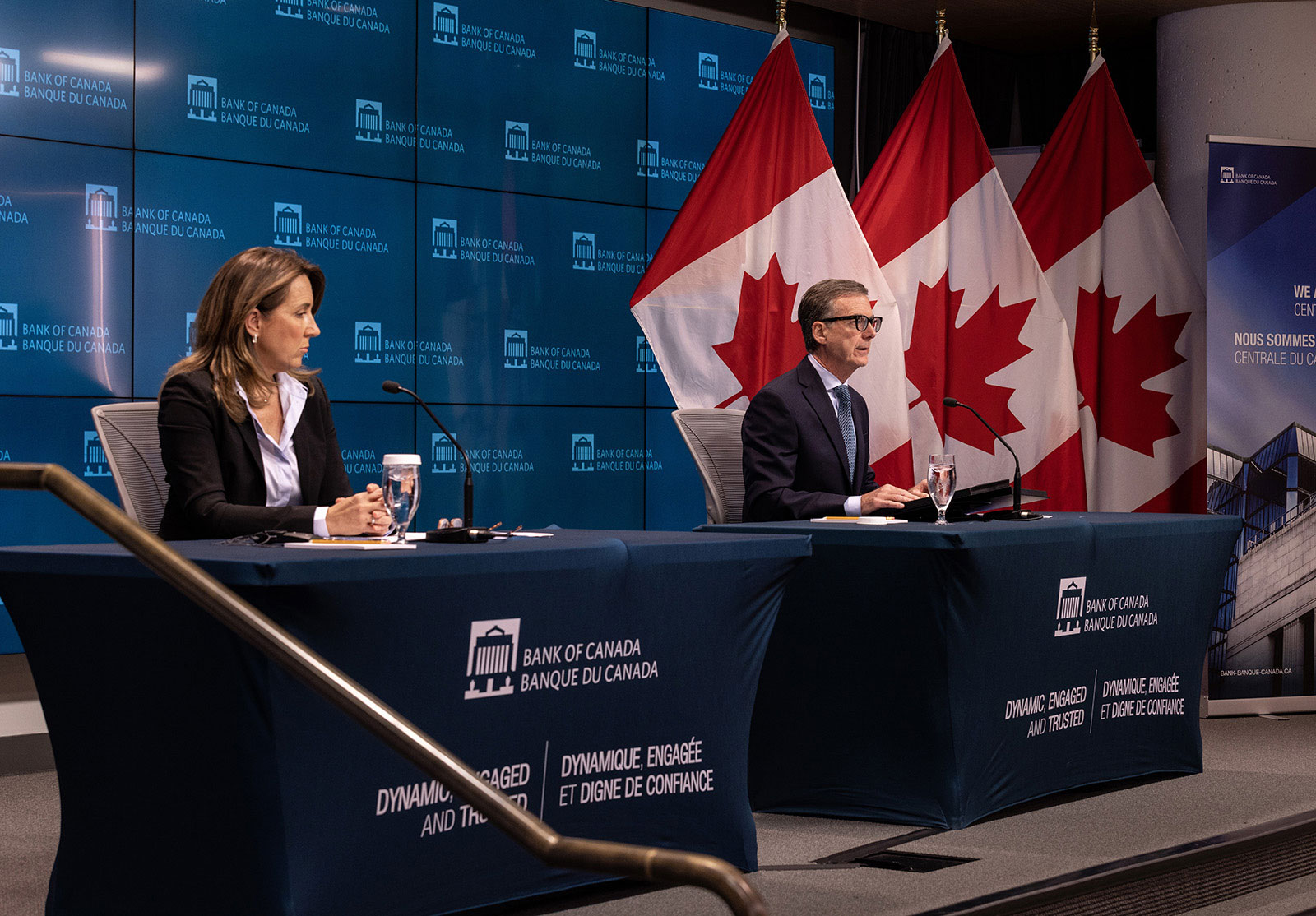
While experts and consumers alike hope for a cut in the key interest rate, the Bank of Canada continues to prolong the wait. Will the central bank continue to hold at 5.00% at its June 5 meeting?
We spoke to Matthieu Arseneau, deputy chief economist with National Bank Financial, to learn more.
The case for a rate cut
Several indicators seem to confirm the time is right for a rate cut.
“In our view, Canada’s general inflation problem has been solved for several months now,” Arseneau said.
Since the beginning of the year, core inflation measures — those that exclude the most volatile components — “have been rolling in below the Bank of Canada’s target,” he said. “Even when we look at total inflation, we’re at 2.7%. And if we exclude the mortgage-interest cost component — the rise in which is attributable to central banks — we’re below 2%.”
Arseneau understands the BoC is worried that the drop in inflation is temporary, as in the United States, but he doesn’t feel that is the case. He said U.S. prices have dropped due to a reduction in import prices, while in Canada the decline is entirely “consistent with the economic situation.”
He also points out that GDP per capita has been falling for seven quarters now, which NBF believes is the key indicator to rely on.
The labour market is also slowing down. “Clearly, the labour market is not capable of absorbing the population growth we are experiencing at the same pace as before. The unemployment rate is up 1.3%,” Arseneau noted. Further, wage growth has also moderated.
He attributes the recent rebound in private employment growth to the population increase observed in April, and doesn’t believe it signals a new trend.
“We’re back to historically low levels. Half of all companies are now more concerned about sales and customer demand. In our view, this is a sign that a flurry of hiring is not going to happen over the next few months,” Arseneau said.
What is the bank waiting for?
Arseneau said the BoC is probably waiting for signals from the U.S. Federal Reserve, which discussed (and then dismissed) at its May 1 meeting the prospect of actually raising rates.
The BoC’s reliance on the Fed “is quite surprising, given the divergent economic situations,” Arseneau said. He believes the conditions were already in place in Canada in April for interest rate cuts.
In particular, he points out that monetary policy can takes a long time to affect the economy.
“We’re going to have to be careful, because with the current level of interest rates, the payment shock on households with mortgage debt continues,” he warned. “Every quarter, new cohorts are being hit by interest rate hikes due to mortgage renewals. There’s a risk that they’ve kept monetary policy too restrictive for too long and it’s inflicting too much damage on the economy.”
Arseneau pointed out that during the BoC’s most recent deliberations, some members seemed more ready to act than others.
Arguments against a cut
Even a small chance that the Fed could raise rates could lead the BoC to hold rates. A significant gap between BoC and Fed rates would lead to a significant depreciation of loonie against the U.S. dollar.
However, in 2006 the spread was 100 basis points, Arseneau said, which is a long way off.
Further, the Canadian and American economies remain different. South of the border, unemployment rates have not risen as sharply as in Canada, and wage pressures remain high.
The other major difference is the structure of the mortgage market.
“In the U.S., 90% of mortgages have 30-year terms. So there’s not the same monetary policy transmission in the U.S. as in Canada,” Arseneau said. “In our view, the Bank of Canada will lower rates before the Federal Reserve.”
Nonetheless, the BoC’s latest announcement did not suggest there would be a rate cut at its next meeting.
“In January 2022, when there was every reason to raise interest rates, the BoC had not prepared investors and economic players for this scenario, [so] it preferred to limit itself to sending the message of upcoming interest rate hikes and [waited until its next meeting] to launch … significant interest rate hikes,” Arseneau said.
At this point, only 64% of the market is expecting a rate cut, he said.
Arseneau believes the BoC will hold rates steady this month, announcing that a cut will take effect in July. However, if the BoC finally decides to proceed with a cut in June, he won’t be surprised.
The next key rate announcement dates are scheduled for June 5 and July 24.